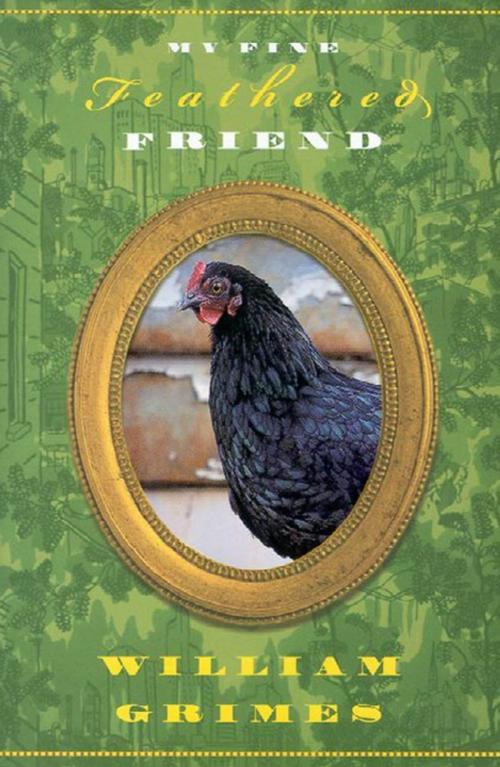| Author: | William Grimes | ISBN: | 9781466822139 |
| Publisher: | Farrar, Straus and Giroux | Publication: | March 25, 2002 |
| Imprint: | North Point Press | Language: | English |
| Author: | William Grimes |
| ISBN: | 9781466822139 |
| Publisher: | Farrar, Straus and Giroux |
| Publication: | March 25, 2002 |
| Imprint: | North Point Press |
| Language: | English |
Boy Meets Bird.
Boy Gets Bird.
Boy Loses Bird
An Urban Folktale.
One day in the dead of winter, New York Times restaurant critic William Grimes looked out the window into his backyard in Queens and saw a chicken, jet black with a crimson comb. Wherever it had come from, it showed no sign of leaving, and it quickly made a place for itself among the society of resident stray cats. Before long, the chicken became the Chicken, and it began to arouse not only Grimes's protective impulses but also his curiosity. He discovered that chickens were domesticated first as fighters, not food; that egg-laying is triggered by exposure to light; that chickens were a fashion statement in Victorian days. He began to probe the mysteries of gallinaceous behavior, learning to distinguish a dust bath from a death dance and how to cater to his guest's eclectic palate. And when the Chicken began to repay his hospitality with five or six custom-laid eggs per week, Grimes had an answer to the age-old conundrum of which came first: the Chicken.
And then one day, obeying some bird-brained logic of its own -- or perhaps the victim of fowl play -- the Chicken vanished, leaving Grimes eggless but with this funny, enlightening, and heartwarming tale to tell.
Boy Meets Bird.
Boy Gets Bird.
Boy Loses Bird
An Urban Folktale.
One day in the dead of winter, New York Times restaurant critic William Grimes looked out the window into his backyard in Queens and saw a chicken, jet black with a crimson comb. Wherever it had come from, it showed no sign of leaving, and it quickly made a place for itself among the society of resident stray cats. Before long, the chicken became the Chicken, and it began to arouse not only Grimes's protective impulses but also his curiosity. He discovered that chickens were domesticated first as fighters, not food; that egg-laying is triggered by exposure to light; that chickens were a fashion statement in Victorian days. He began to probe the mysteries of gallinaceous behavior, learning to distinguish a dust bath from a death dance and how to cater to his guest's eclectic palate. And when the Chicken began to repay his hospitality with five or six custom-laid eggs per week, Grimes had an answer to the age-old conundrum of which came first: the Chicken.
And then one day, obeying some bird-brained logic of its own -- or perhaps the victim of fowl play -- the Chicken vanished, leaving Grimes eggless but with this funny, enlightening, and heartwarming tale to tell.















